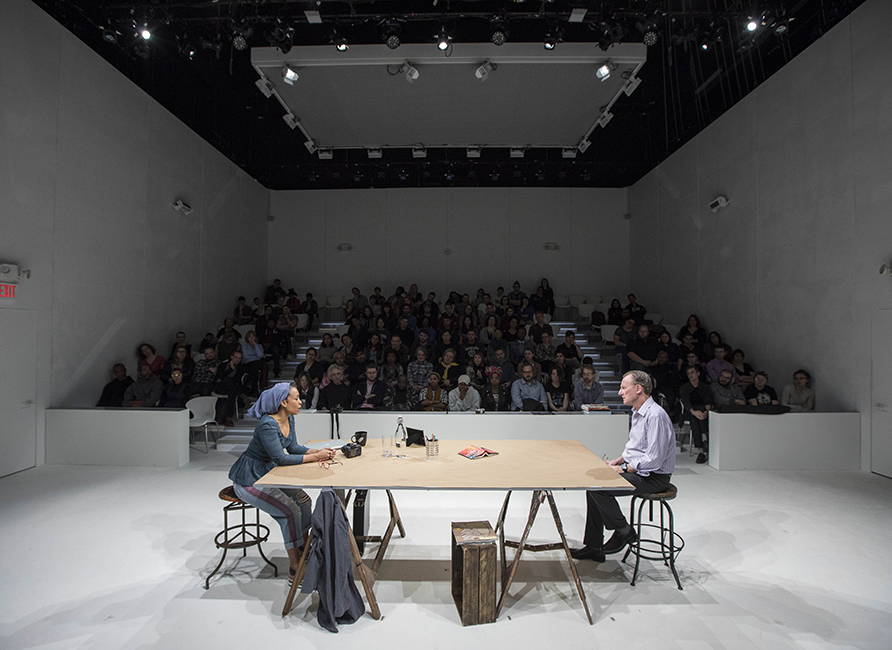
News
Pro-Palestine Encampment Represents First Major Test for Harvard President Alan Garber

News
Israeli PM Benjamin Netanyahu Condemns Antisemitism at U.S. Colleges Amid Encampment at Harvard

News
‘A Joke’: Nikole Hannah-Jones Says Harvard Should Spend More on Legacy of Slavery Initiative

News
Massachusetts ACLU Demands Harvard Reinstate PSC in Letter

News
LIVE UPDATES: Pro-Palestine Protesters Begin Encampment in Harvard Yard
Claudia Rankine on 'Citizen' and 'The White Card' at Emerson

On March 4, award-winning poet and playwright Claudia Rankine sat down to continue a conversation she started with her new play “The White Card” with over 1,000 people in Boston. Presented by fellow collaborator P. Carl at the Emerson Cutler Majestic Theater , Rankine’s discussion revolved around her personal experiences and revelations accumulated during both the time she took to write her poetry book “Citizen: An American Lyric” and the world premiere of “The White Card,” which explores racism through the lens of white philanthropy.
Rankine began by revealing the emotional process she underwent writing “Citizen.” “The ‘Citizen’ began with [Hurricane] Katrina,” Rankine said. “When Katrina happened, many people said, ‘How could this happen?’ And it became sort of an irritant for me.” Unlike her peers, Rankine was unsurprised that the entire black community was abandoned after Katrina struck. One of her main purposes for writing “Citizen,” a book of poetry about race and imagination, was to show how microaggressions accumulate, allowing for larger aggressions to develop so that with Katrina oppressed groups felt abandoned after the hurricane took place.
After Rankine was diagnosed with breast cancer, she stayed at home and sifted through moments in the media that caught her imagination. It was during these moments of uninterrupted silence that Rankine was able to think about how to communicate the narratives she had gathered from her background research. She argued that the reason these racialized microaggressions are so often ignored is because the aggressors often forget their actions. But their victims do not. Acknowledging that the targets of this racialized prejudice do not forget such experiences, she made phone calls to friends who had experienced racism in their lives.
Yet Rankine recognized the limits of conveying her friends’ experiences. “That was still hearsay,” she said. To resolve this issue, Rankine sought to include pieces that readers could fact-check, leading her to write a chapter on Serena Williams that documented her history in the U.S. Open where it seemed as if being black caused Serena Williams to be treated unjustly on the court, such as when umpire Mariana Alves made five bad calls against her or when the media pigeonholed her competitive spirit into the stereotype of an “angry black woman.” “I wanted people to say, ‘No, [racism] doesn’t happen,’ and then go to Youtube and see that people cannot help but project onto black people ideas around criminality,” Rankine said.
Want to keep up with breaking news? Subscribe to our email newsletter.
